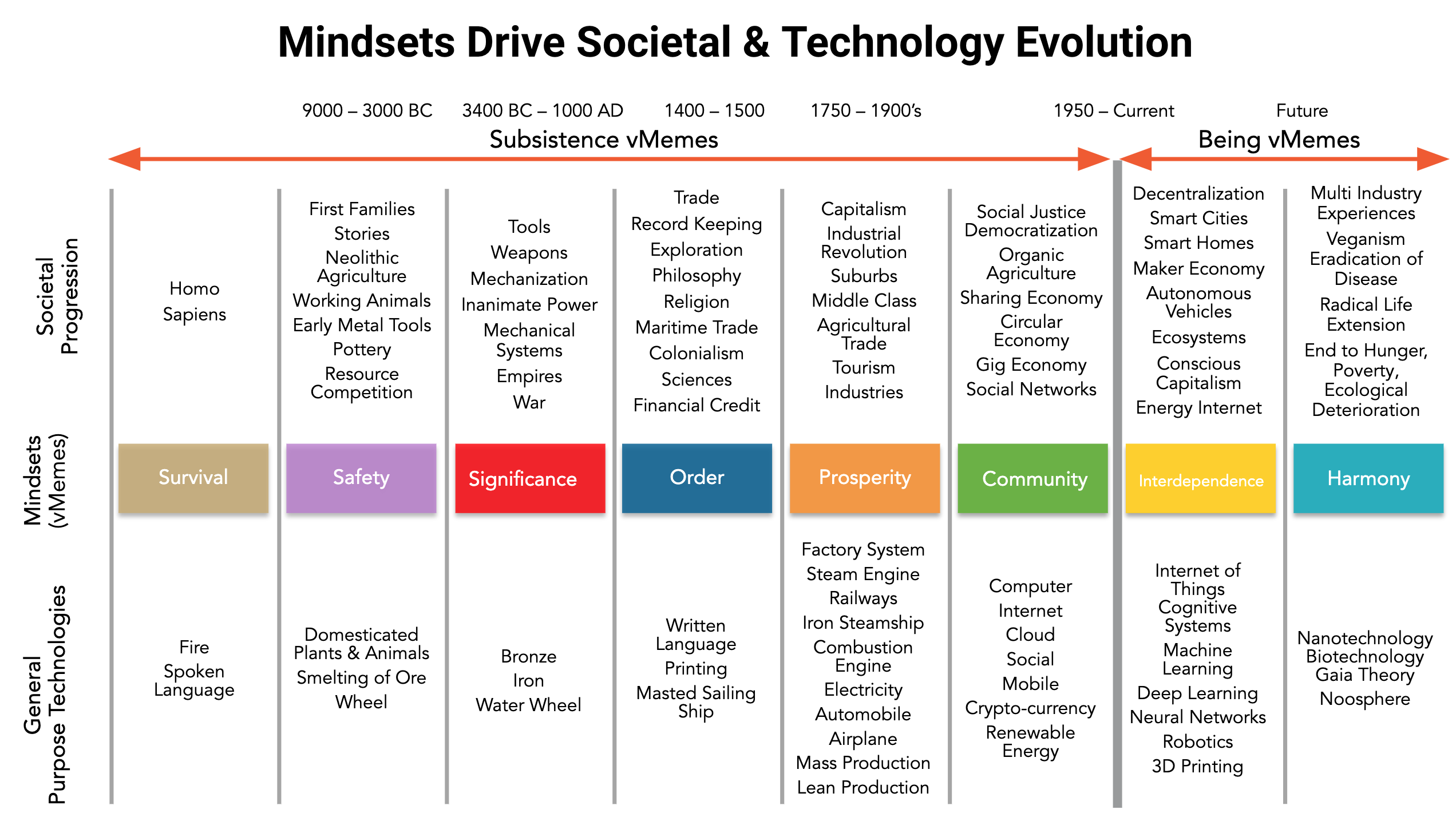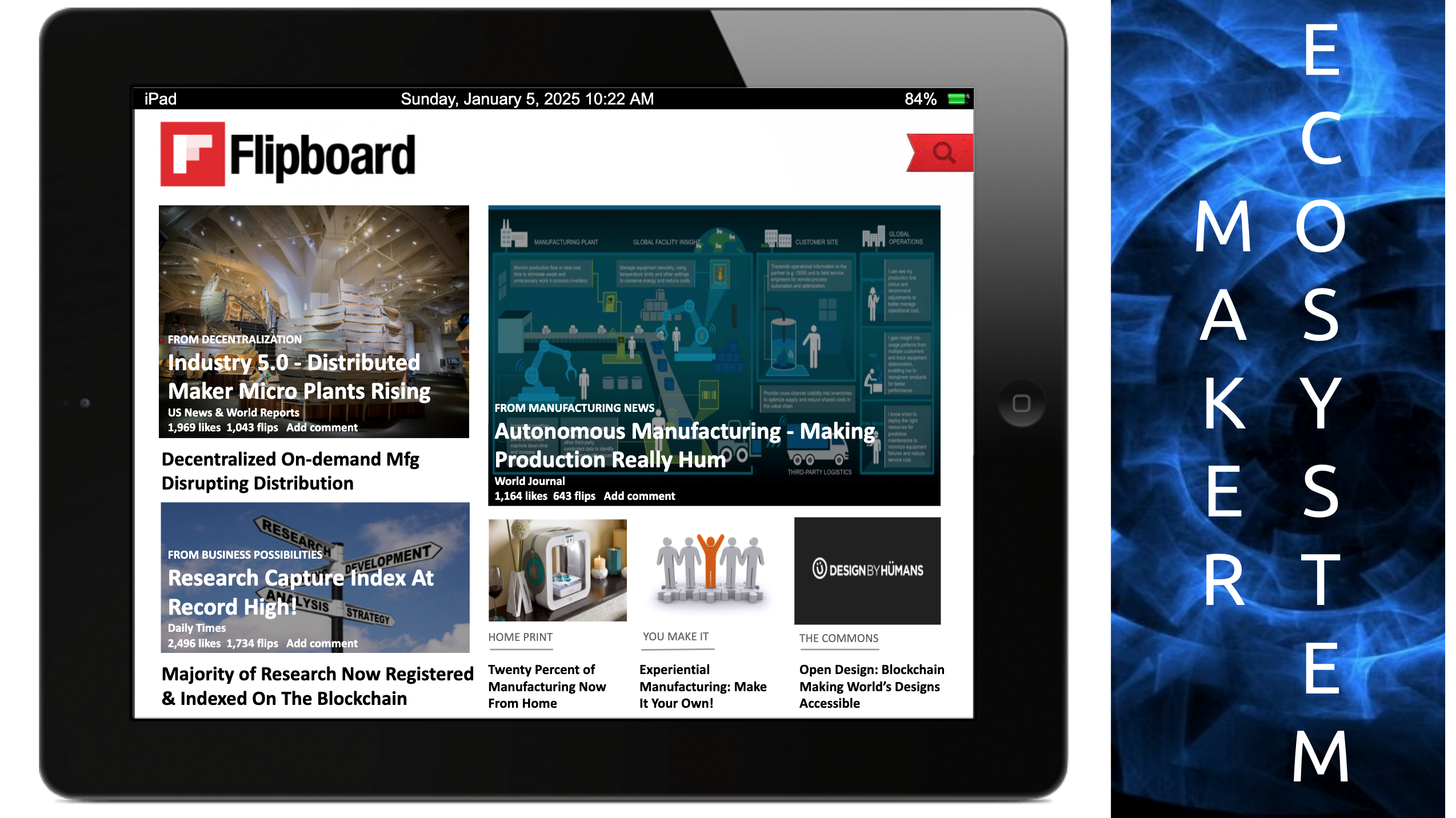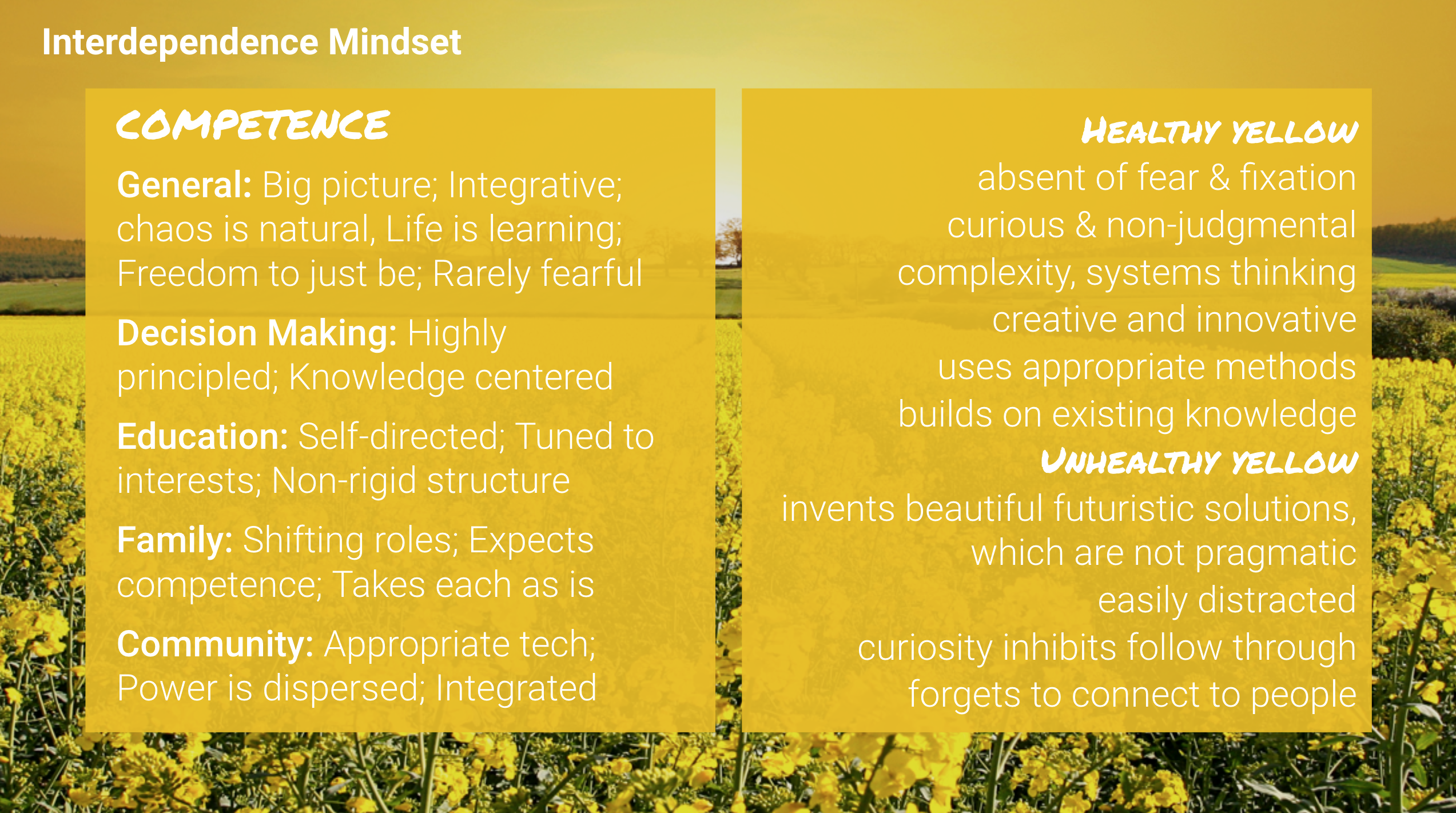In this third episode of the Boundaryless Conversations Podcast, hosts Simone Cicero and Stina Heikkilä interview Fab Lab Barcelona co-founder and maker movement pioneer Tomás Diez. The conversation touched on a number of fascinating topics, including looking back at the history of converging technologies as a means to look forward, the impact of COVID19 pandemic as a catalyst for change, hyper-localized maker movement and its role in creating self-sufficient citizens and ultimately evolving the human experience.
A link to the podcast can be found here.
Here are the highlights and my thoughts.
On Convergence and the Emergence of Fab Citizens
The podcast started with a question around what the post COVID 19 world might look like and rather than make a prediction, Tomás did a little looking back to look forward. He talked about the concept of convergence, how it has shaped our history and how he believes it is shaping our future. Looking back to look forward is also how I’ve attempted to make sense of our emerging future. The graphic below depicts how I’ve correlated the relationship between mindsets and the convergence of general purpose technologies and societal advancements.

Tomás talked about how the convergence of distributed networks as new forms of organization with more advanced forms of communication are driving widespread access to knowledge. He felt that we need to reframe how that knowledge is administered and shared around the world. And when combined with advancements in synthetic biology, artificial intelligence, additive manufacturing and decentralized systems like blockchain, we are in another moment of convergence that may propel society forward. When asked about the current pandemic’s ability to catalyze change, like perhaps governments reducing reliance on global supply chains and focusing on local production through a maker movement, he felt it was too early to tell. But he did feel it was important to continue to make technologies more accessible and help people to understand that the more they know how to produce what they need, the more self-sufficient and resilient they become.
On a Glocal Economy and Maker Ecosystem
Simone asked Tomás about the possibility that the de-universalizing of technology in manufacturing and embedding it into local communities could create “fab citizens” as prosumers and generalists in hyper-local maker economies. He mentioned that in detaching things like agriculture and manufacturing from human labor, we’ve transformed their nature. Tomas then reflected on the impact of industrialization on the human experience in terms of how we spend our time. This immediately brought to mind John Maynard Keynes’ famous quote on abundance from Economic Possibilities for Our Grandchildren:
“Thus, for the first time since his creation, man will be faced with his real, his permanent problem – how to use his freedom from pressing economic cares [ ] to live wisely and agreeably and well. It will be those [ ] who can keep alive [ ] the art of life itself and do not sell themselves to the means of life, who will be able to enjoy the abundance when it comes.”
I was also thinking that although there is a lot of conversation now about “the new normal” that will emerge post-pandemic, a new normal in the form of a Maker ecosystem had been emerging prior to the pandemic. One where centralized manufacturing rapidly automates and further detaches the means of production from communities and one where hyper-local democratized manufacturing emerges. I depicted this emerging future back in 2015 by imagining headlines from the future of a Maker Ecosystem.

On Defining Platforms Beyond Technology
On the emerging centralized vs. decentralized dynamic in manufacturing, Simone asked Tomás his views about the potential sacrifices necessary, tools required and who would be the architects of this new future. Tomás felt we need to enable connections between people. He felt that the definition of platform needed to be expanded beyond software to include distributed infrastructure and new forms of learning as well as platforms to share between communities. He said we also need change in policy to allow for change and need to create spaces to nurture this broader definition of new architecture like a garden rather than constructing it artificially like a building.
On Resilience
Last, the conversation turned to the role of institutions as we transition from a corporate-centric world to an institution-centric world. Tomás noted that the current pandemic highlighted our current reliance on centralized institutions that fail to provide for us:
“So now now more than ever, we are going back to a centralised way of understanding the organisation of society in which someone from very far away from you that you would never see in your life in person is determining how you live, right? So we’re seeing that, in the minimum moment of real crisis, which is somehow threatening human lives, we’re going back to the institutions that we trust.”
Tomás noted that so long as our current centralized institutions form the basis of our systems of production of food, energy, transportation and goods, we are going to have to rely on them. He went on to defend the role of local communities as institutions to give more social and local response to needs and that only comes when we introduce new self-sufficient ways of producing and consuming the things that we need. He also recognized the disadvantages that local maker economies have when compared to the scale, cost, and efficiency of global centralized manufacturing. And yet those scaled centralized systems mask the hidden costs to the environment and their reliance on living systems that are not infinite in nature.
Stina asked how we could tap the benefits of global knowledge that come from our connected world to empower local resilience. Tomás felt it was important to realize that beyond connected communication, this connectedness is about natural systems. We need to recognize that beyond our small village, country and continent, we are all part of an interconnected system. And yet any future system we devise cannot sacrifice the convenience we are accustomed to in our current systems. He went on to suggest we redefine the meaning of comfort and convenience to include externalities like climate, pollution and inequality. Lastly, Tomás noted that while tools are important, they must be supportive rather than extractive to local communities. Beyond tools, it is important to change the paradigm of how we educate people. We need to create spaces for real learning rather than educating people for roles in a system that no longer works. He said we need to create learning spaces where we figure out together the architecture for how the world will work for the next 100 years.
This brought to mind the knowledge, learning and systems focus of the yellow/interdependence mindset, which emerges precisely as a result of the need to re-architect the models and systems created by first tier thinking.

